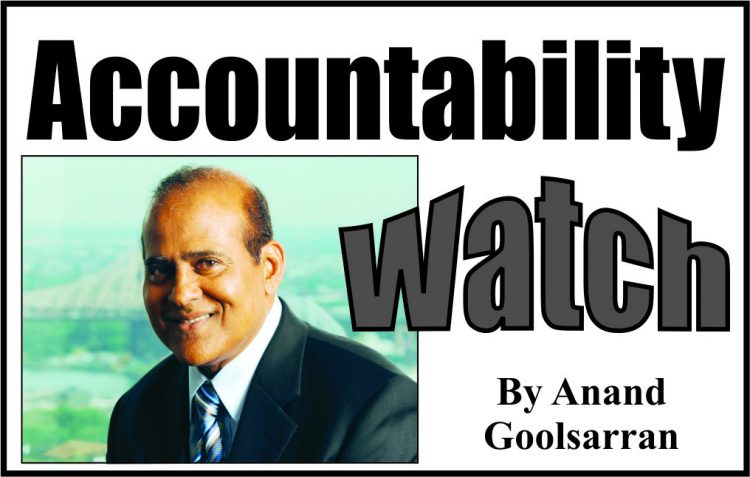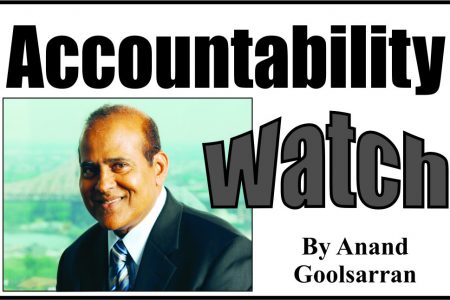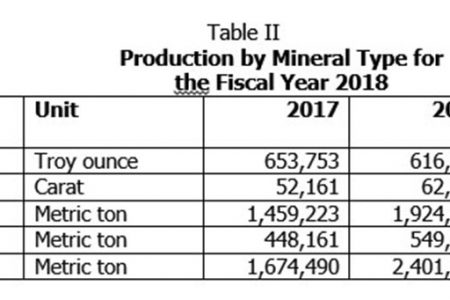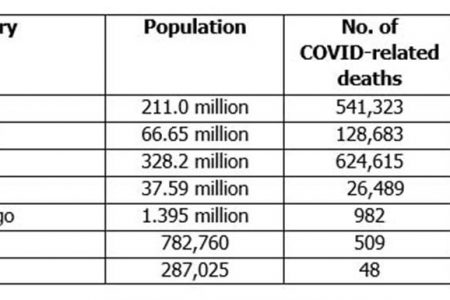
The Santiago Principles and the NRF Act 2021 (Part II)
Last week, we began a discussion of the Santiago Principles and the extent to which the recently passed Natural Resource Fund Act 2021 is in conformity with those principles.

Last week, we began a discussion of the Santiago Principles and the extent to which the recently passed Natural Resource Fund Act 2021 is in conformity with those principles.
On New Year’s Day, the authoritarian government of the oil-rich nation of Kazakhstan removed the subsidy on fuel prices, sparking countrywide protests not only because of the resulting higher gas prices but also over issues relating to inequality, poverty and corruption.

A recent study conducted by the UK charity, Christian Aid, assessed the cost of the damage caused by ten of last year’s most devastating weather events at around US$170 billion.

The Thwaites Glacier in Antarctica is about the size of Florida.

Government operations should be transparent such that citizens and the media can provide oversight and hold officials accountable.

We are now living in the eye of the storm. Adapting the world to our climate emergency is essential for our safety, even as we tackle a global pandemic… Millions of lives and the safety of communities around the world are already at stake. – Patrick Verkooijen, CEO of the Global Center on AdaptationLast week, we reported that Barbados has discontinued the “travel bubble” that exempts persons from certain countries from further quarantine or testing upon arrival.

Guyana’s Minister of Health has stated that the Infectious Diseases Hospital facility at Liliendaal may have to be expanded if the COVID-19 cases continue to rise.

Guyana’s Health Minister has stated that the Delta variant of the COVID-19 pandemic may be in Guyana, judging from the spike in the number of COVID-19 cases in the last week or so.

Last week’s article was the second on an examination of the Guyana 2018 Extractive Industries Transparency Initiative (EITI) Report.

Complex and opaque corporate structures are at the front and centre of major financial crimes.

Last Thursday, Britain issued a travel ban on Equatorial Guinea’s Vice-President Teodoro Obiang Mangue.

In the last month or so, there were four major heat waves in the western part of the United States with record triple-digit temperatures in Oregon and Washington that caused hundreds of heat-related deaths.

Last week, we reported that former South African President Jacob Zuma turned himself over to the authorities after he was sentenced to 15 months’ imprisonment for his failure to appear before the country’s anti-corruption commission to answer charges of corruption while holding office.

Corruption and discrimination have long been recognised as significant barriers to achieving an equal and inclusive future…We found compelling evidence that discrimination – whether on the basis of race, ethnicity, age, gender, sexual orientation or belief – enables and fuels corruption, creating a vicious cycle that deepens inequality. Transparency International & Equal Rights Trust Last week, we reported that former South African President, Jacob Zuma, was sentenced to 15 months’ imprisonment for his failure to appear before the country’s anti-corruption commission investigating certain allegations against him while holding office.

The temperature in the Canadian province of British Columbia reached a record high last week at 46.6°C (115.88°F), resulting in at least 233 deaths and the closure of schools and universities.

In a previous article, we had referred to the lawsuit filed by the Massachusetts Attorney General alleging that ExxonMobil was misleading consumers and investors about its role in climate change.

On 11 March 2020, the World Health Organisation (WHO) declared COVID-19 a pandemic.

Corruption threatens the stability and security of societies, undermining the institutions and values of democracy, ethical values and justice, and jeopardizing sustainable development and the rule of law.

In fact, climate change is already becoming visible in more frequent occurrences of secondary perils such as flash floods, droughts and forest fires.

Last Wednesday, a Dutch court ordered Royal Dutch Shell to reduce its carbon emissions by 45 percent from its 2019 levels by 2030.
The ePaper edition, on the Web & in stores for Android, iPhone & iPad.
Included free with your web subscription. Learn more.